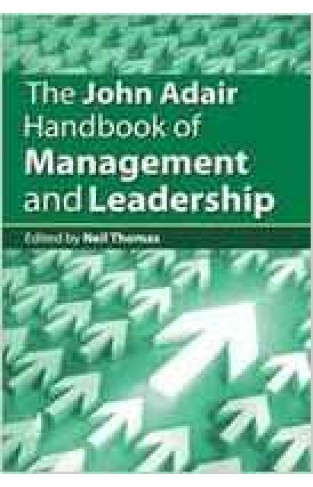Chapter 1 Time management • Introduction • Tempus Fugit • Basic approach to time management • Developing a personal sense of time • Time audit • Analyse and improve your use of time • Identifying long-term goals • Making medium-term plans • Smarter objectives • Planning the day • The Adair urgency/importance matrix • Tips on daily planning • Making the best use of your best time • Organising office work • Dealing with interruptions • Dealing with paperwork • Other elements to improve your time management in the office • Managing meetings • Delegating effectively • Deciding what to delegate • Making use of committed time • Managing your health • How topped up are your batteries? • Stress • Summary and six-month follow-up test
Chapter 2 Setting and achieving goals and objectives• Introduction • Personal goals and objectives • Professional/business goals and objectives • Summary and six-month follow-up test
Chapter 3 Decision-making and problem-solving • Introduction • Decision-making skills • The Manager as decision-maker • Key elements of effective thinking and decision-making • Analysis • Synthesis • Other useful approaches • Imagination • Conceptual thinking • Intuition • Originality and Innovation • The concept of value in decision-making • Decision-making and weighing up the options • Summary and six-month follow-up test
Chapter 4 Creativity and innovation• Introduction • Creativity • Innovation • Recruit/select creative people • Encouragement of creativity in teams • Team training • Communicating about innovation • Overcoming obstacles to innovation • Organisation and Innovation • The Generation of ideas • Characteristics of, innovators • Summary and six-month follow-up test
Chapter 5 Part 1 : Personal reminders and thoughts worth thinking• Introduction • Time management • Setting and achieving goals and objectives • Decision-making and problem-solving • Creativity and innovation
Part 2 Managing others
Chapter 6 Leadership and teambuilding• Leadership • Qualities of leadership • Functions of leadership • Leadership characteristics • Leadership skills • Defining the task • Planning • Briefing • Controlling • Evaluating • • Motivating • Organising • Setting an example • Developing leadership skills • Teambuilding • Task • Team • Individual • Summary and six-month follow-up test
Chapter 7 Motivation and people management• Introduction • The 50:50 rule • Needs and motivation • Maslow’s hierarchy of needs • McGregor’s Theory X and Theory Y • Herzberg’s motivation - hygiene theory • Managers/leaders and motivation • Getting the best from people • Be motivated yourself • Select people who are highly motivated • Treat each person as an individual • Set realistic and challenging targets • Remember that progress motivates • Create a motivating environment “ • Provide fair rewards • Give recognition • Summary and six-month follow-up test
Chapter 8 Communication and presentation• Introduction • Issues in communication • Listening • Reading skills • Writing skills • Speaking and presentation skills • Effective speaking • Presentation skills • One-to-one interviews • Managing meetings • Within your organisation • Summary and six-month follow-up test
Chapter 9 Part 2: Personal reminders and thoughts worth thinking • Introduction • Leadership and teambuilding • Motivation and people management • Communication and presentation •












